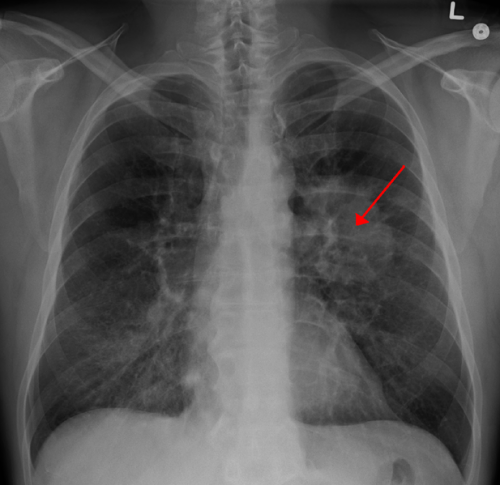LCMC3: Neoadjuvant atezolizumab safe, meets primary endpoint of pathologic response rate


Primary analysis of the Lung Cancer Mutation Consortium (LCMC) 3 study revealed that neoadjuvant atezolizumab prior to lung cancer surgery was well tolerated by patients and met its primary endpoint of 20% major pathologic response rate, according to research presented today at the International Association for the Study of Lung Cancer’s World Conference on Lung Cancer.
Dr. Jay M. Lee, chief, Division of Thoracic Surgery at Ronald Reagan UCLA Medical Center in Los Angeles, today reported on results from a study of 181 patients with stage IB to IIIB non-small cell lung cancer (NSCLC) who each received 1,200 mg of neoadjuvant atezolizumab intravenously every three weeks for two cycles followed by resection. Atezolizumab is a monoclonal antibody that was approved by the US Food and Drug Administration in 2020 for the first-line treatment of adult patients with metastatic NSCLC.
Dr. Lee reported earlier that small pilot studies (N Engl J Med. 2018;378:1976) have shown preoperative immune checkpoint inhibitor therapy may be of benefit in resectable NSCLC. Dr. Lee stated that “the LCMC3 study is the largest, monotherapy trial of checkpoint inhibition in resectable NSCLC and is a landmark study to compare future results.”
Patients received neoadjuvant atezolizumab for two cycles, followed by resection between 30 and 50 days from the first cycle. Patients who benefitted from the therapy continued adjuvant atezolizumab for 12 months. The primary endpoint was major pathologic response (MPR; less than or equal to 10% viable tumor cells at surgery) in patients without EGFR or ALK mutations.
Of the 181 patients enrolled, the median age was 65 years; 51% were female, 90% were current/former smokers, and 62% had a nonsquamous histology. Patients were categorized in the following stages: 17 patients were staged at IB; 20 were IIA, 55 were IIB, 72 were IIIA, and 17 were IIIB.
In patients without EGFR/ALK mutations who underwent surgery, the major pathologic response rate was 21% (30/144; 95% CI: 14%-28%) and the pathologic complete response rate was 7% (10/144; 95% CI: 3%-12%).
“It is important to recognize that the preoperative and intraoperative unresectability rates in LCMC3 are comparable to historical neoadjuvant chemotherapy trials and should not raise concern,” said Dr. Lee. Following atezolizumab, unresectability was detected preoperatively in only 22 out of 181 (12%) and intraoperatively in 7 out of 159 (4%). The majority of patients (151/159; 95%) had anatomic oncologic resections and only 15 out of 101 (15%) converted to thoracotomy. Pathologic downstaging was seen in 66 out of 155 (%). Only 19 out of 159 (12%) had surgery outside of protocol window.
Intraoperative complications were rare (5/159; 3%) and 145 out of 159 (92%) had complete (R0) resection. Postoperative adverse reactions correlated with fewer viable tumor cells in the resected specimen. Mortality for 30 days and 30 to 90 days were each 1 out of 159 (0.6%).
“Following neoadjuvant atezolizumab, resection was performed safely with low perioperative morbidity and mortality soon after completion of neoadjuvant therapy, infrequently outside of the protocol window, and with high complete resection rates,” Dr. Lee said. “These findings represent the primary analysis of the completed LCMC3 study and are consistent with our previous results, including a preliminary report on a portion of these patients [in] 2019.”
Source: Read Full Article